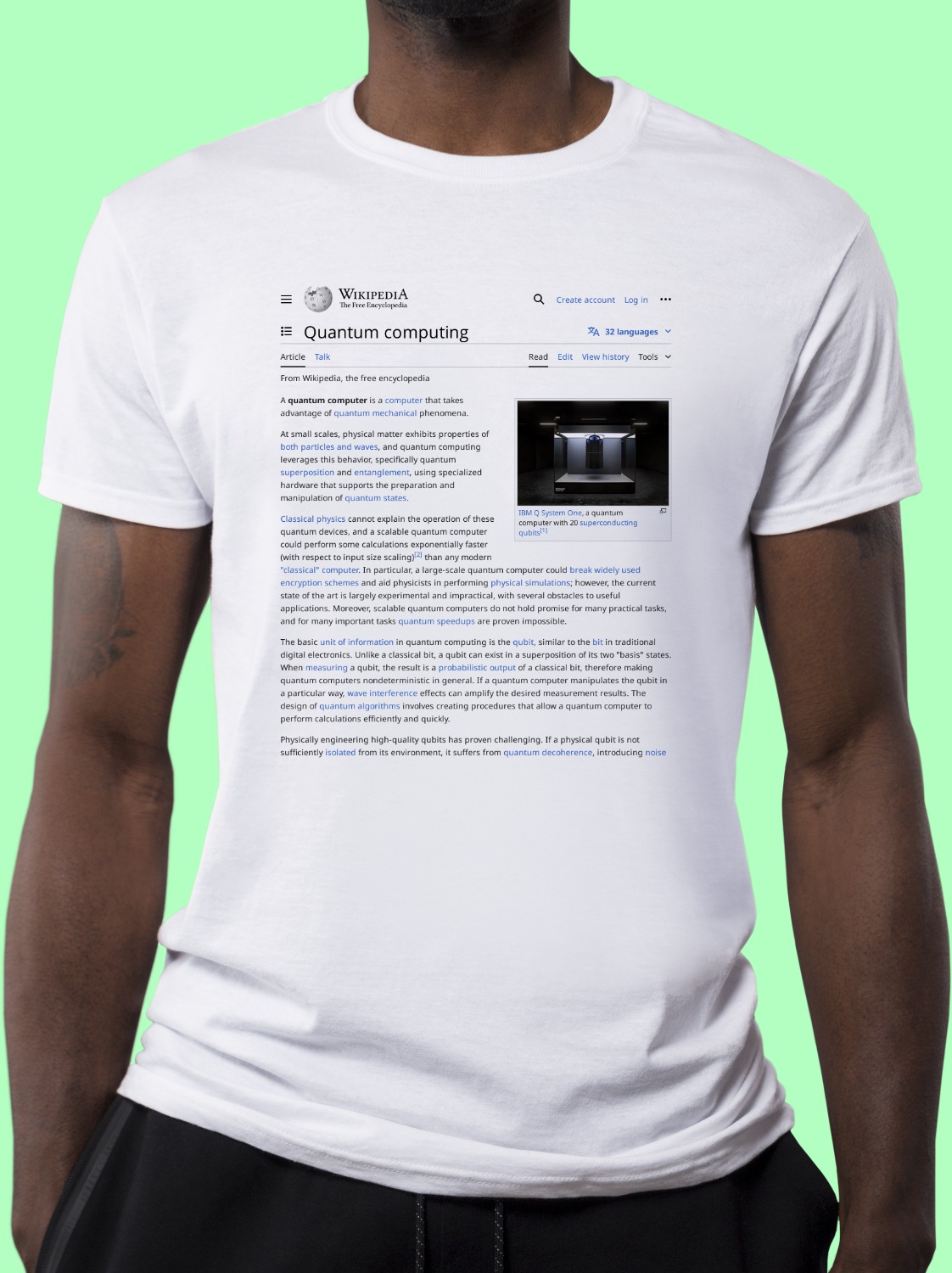
Quantum computing Shirt
A classic cotton tee emblazoned with the Wikipedia article on Quantum computing ↗.
cotton tee emblazoned with the Wikipedia article on Quantum computing ↗.- Preshrunk jersey knit
- Seamless double-needle 2.2 cm collar
- Taped neck and shoulders
- Tear away label
- Double-needle sleeve and bottom hems
- Quarter-turned to eliminate centre crease
A quantum computer is a (real or theoretical) computer that exploits superposed and entangled states. Quantum computers can be viewed as sampling from quantum systems that evolve in ways that may be described as operating on an enormous number of possibilities simultaneously, though still subject to strict computational constraints. By contrast, ordinary ("classical") computers operate according to deterministic rules. (A classical computer can, in principle, be replicated by a classical mechanical device, with only a simple multiple of time cost. On the other hand (it is believed), a quantum computer would require exponentially more time and energy to be simulated classically.) It is widely believed that a quantum computer could perform some calculations exponentially faster than any classical computer. For example, a large-scale quantum computer could break some widely used public-key cryptographic schemes and aid physicists in performing physical simulations. However, current hardware implementations of quantum computation are largely experimental and only suitable for specialized tasks.
The basic unit of information in quantum computing, the qubit (or "quantum bit"), serves the same function as the bit in ordinary or "classical" computing. However, unlike a classical bit, which can be in one of two states (a binary), a qubit can exist in a linear combination of two states known as a quantum superposition. The result of measuring a qubit is one of the two states given by a probabilistic rule. If a quantum computer manipulates the qubit in a particular way, wave interference effects amplify the probability of the desired measurement result. The design of quantum algorithms involves creating procedures that allow a quantum computer to perform this amplification.
Quantum computers are not yet practical for real-world applications. Physically engineering high-quality qubits has proven to be challenging. If a physical qubit is not sufficiently isolated from its environment, it suffers from quantum decoherence, introducing noise into calculations. National governments have invested heavily in experimental research aimed at developing scalable qubits with longer coherence times and lower error rates. Example implementations include superconductors (which isolate an electrical current by eliminating electrical resistance) and ion traps (which confine a single atomic particle using electromagnetic fields). Researchers have claimed, and are widely believed to be correct, that certain quantum devices can outperform classical computers on narrowly defined tasks, a milestone referred to as quantum advantage or quantum supremacy. These tasks are not necessarily useful for real-world applications.
About Wikishirt
Wikishirt is a retail experiment that lets you buy a shirt with any Wikipedia Article printed on it. There are over 5 million Wikipedia articles, so we have over 5 million shirts.Check out our homepage for random featured shirts and more!